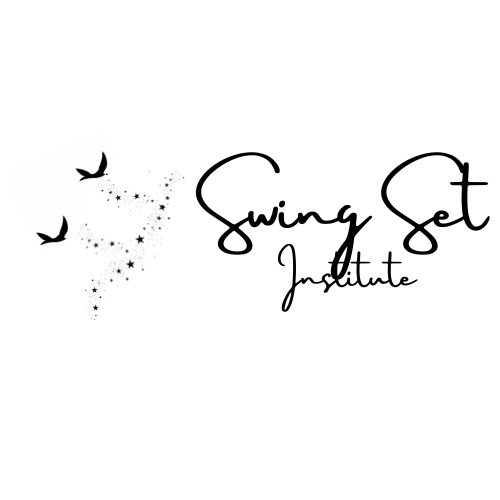

The U.S. educator burnout crisis is deeply intertwined with the youth mental health crisis. The relationship between educator and student stress is bi-directional – as educators are exposed to student hardship, they can develop ‘compassion fatigue’, and students are impacted by ‘stress-contagion’ from burnt out educators (Oberle, 2016). Even with increased funding for more school counselors, educators are uniquely on the frontlines (Collins, 2023).Teaching is considered as stressful as working in an ER (Jennings, 2018), and yet there is no formal training or therapy for educators focused around mental health and overall well-being.
A key system-level strategy for US school-community transformation is supporting educator well-being through affordable and accessible therapy designed for educators that centers self-care in education. Therapy for educators has already shown promising results in districts that have paid for teachers to receive therapy (McCormick, 2021). And yet, a full commitment to educator well-being hasn’t yet been tried at a system level.
My experience with burnout in my first year teaching and experience supporting education changemakers across the country, has made me realize how much education changemakers could benefit from access to therapy designed for educators. This would ideally start before beginning teaching and then be ongoing throughout a teacher’s career. In addition, teachers often feel responsible for the social-emotional health of their students but have insufficient training and support, and need to be empowered on the front lines of mental health in proactive and responsive ways.
Therapy designed specifically for educators that would be most authentically aligned to the foundational qualities of education -realness and ridiculousness- would involve whimsical well-being practices and a collective care community. My strategic approach with the Swing Set Institute, inspired by the wisdom of childhood, supports educators to therapeutically reconnect with the wise qualities of childhood that are the qualities of great educators – playfulness, creativity, humor, curiosity, risk-taking, resilience, and teamwork. This would support educators to creatively prevent burnout, and collectively heal through practicing whimsical habits of mind and to process what happened in their own childhood and school experiences. Education changemakers will grow in awareness of the relationship between their own childhood and triggers they have in daily interactions with students and in educational settings that connect to their past wounds and disempowering experiences.
I believe an ecological approach will be most effective in systems-level change, involving students, educators, and families (the ecology of the child) co-creating a relationship-centered culture in the U.S. Education system. The cornerstone of this ecological approach involves centering whimsical therapeutic support for educators but also could include other dimensions of ecological well-being and empowerment. These could include; conscious use of power training, training in mindful self-compassion, financial empowerment, and Hip Hop Architecture training that brings awareness of how our larger built environment can be designed for liberation.
With educators supported to meet the increasing mental health demands of students and themselves, the US PK-12 education system will surround youth with teachers empowered to authentically empower youth and sustain a purpose-centered career in education. This will reduce educator burnout and support educator and youth well-being – the foundation for school-community thriving. We can unleash the full power of educators embodying what it looks like to be whole, centered, and truly loving towards self and students. Educators deserve access to the empowering tools necessary to heal from their own childhood wounds and process interpersonal power dynamics across age and other identities in education. With whimsical therapeutic support, educators can grow in awareness and transform how they mirror the injustice of the world in how they teach students. Educators can be challenged to question their authority and power over students so that they don’t perpetuate injustice and oppression in everyday moments in education. We can finally get to the source of the system level power-over dynamics of discrimination and oppression whose roots begin at the beginning – in childhood. This will liberate our collective imaginations for what U.S. education could be. We can imagine a world where adults and children are thriving because adults are whimsically healing from their own children and children are empowered from the beginning.
The Swing Set Institute offers an educational practice community to transform education through childhood – for education changemakers to heal from their childhood and integrate the wise qualities of childhood together. With realness, humor, and heart, we can reconnect to our authenticity to empower ourselves from within through our inner wisdom we each can tap back into from our childhood experiences.

Our Heartquarters offers unique courses and whimsical honorary degrees offering education changemakers an innovative educational arena and small tight-knit community for inspiration and solidarity on the education changemaker path.
Heartquarters is empowering the hearts of education changemakers to integrate the wisdom of childhood and the alchemy of disempowering experiences from childhood into your superpower as a changemaker.

Our Inner Playground offers imaginative goofy products to make education more deep and lightly playful. Each creation embodies the Swingalinga spirit to inspire education changemakers to transform everyday moments in real, humorous, and joyful ways.
Inner Playground is empowering the minds of education changemakers to re-think what education can look like with a playful spirit.

Our Swingalinga community offers a small tight-knit loving village of childhood changemakers that centers realness, humor, and heart.
Swingalinga is empowering the spirit of education changemakers to re-imagine how education can transform through the healing of education changemakers from their own childhood and integrating the wise qualities of childhood into their changemaker path.
